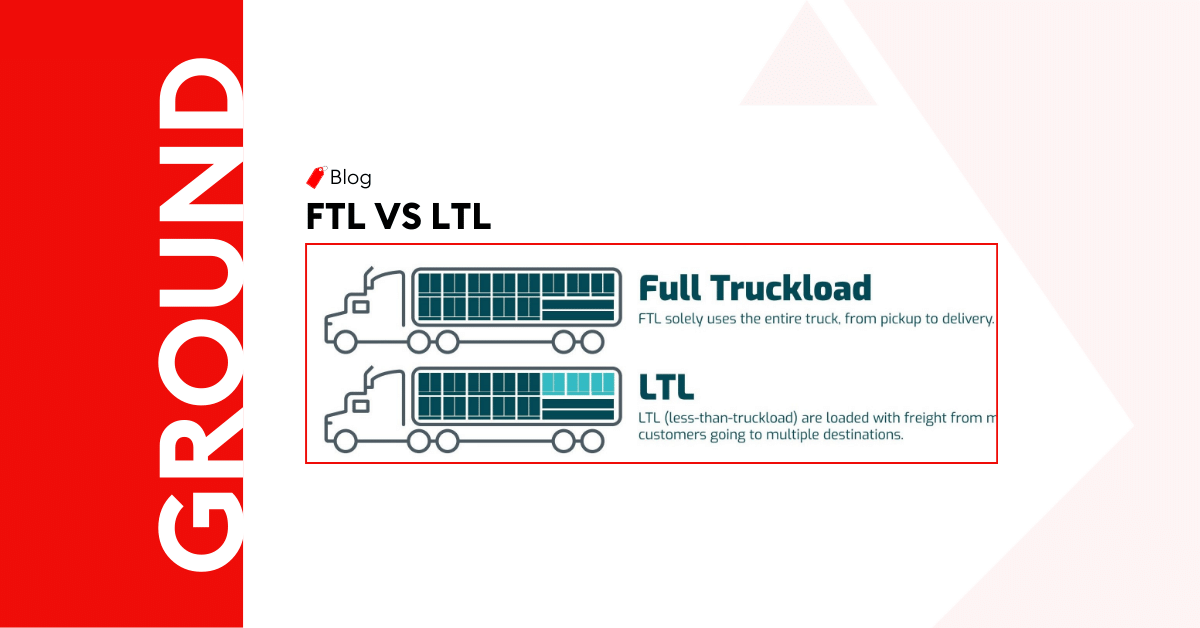
Full Truck Load (FTL) Vs Less Than Truck Load (LTL)
Full Truck Load (FTL) and Less Than Truck Load (LTL) are road freight transportation solutions. FTL is a concept where a shipper has a shipment large enough to fill a dedicated truckload. On the other hand, LTL is a concept where shipments from different shippers are grouped and placed in a single truck.
An interesting fact is that FTL tends to show strengths in the areas of LTL weaknesses and vice versa. This reiterates the fact that logistics is dynamic with different requirements per time. There are logistics needs that are suitable for FTL while some others are suitable for LTL. Therefore, there is a need to understand these solutions to know the best situation applicable. This will optimize the supply chain and give shippers a better experience.
Understanding Full Truck Load (FTL)
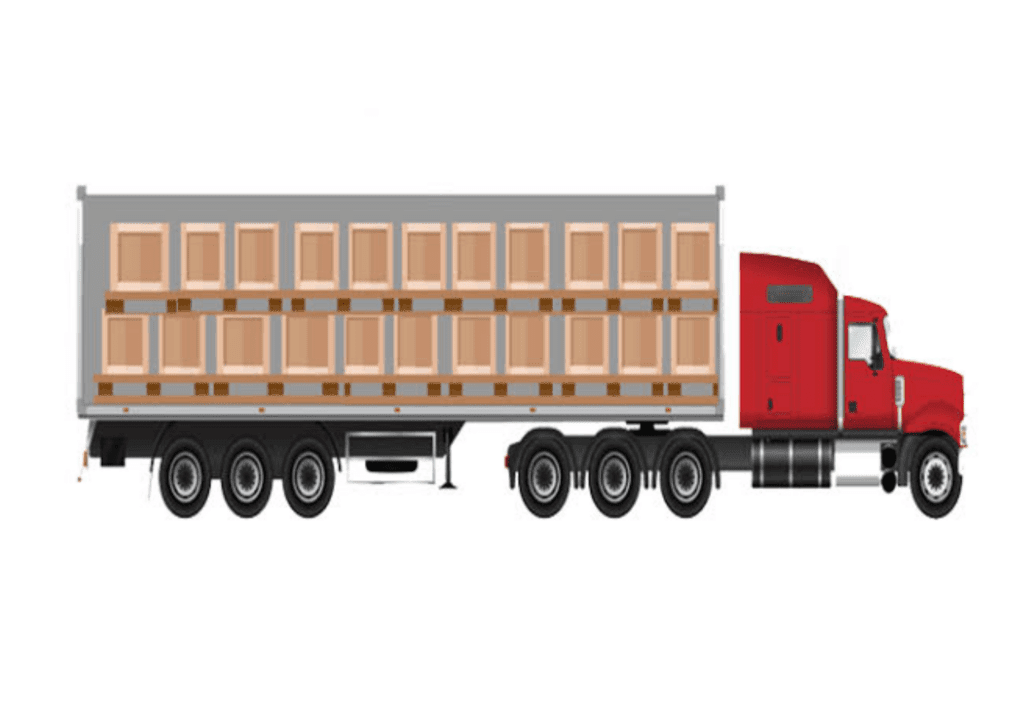
This section will build on FTL description provided in the introductory section. Beyond the basic definition, it is best to dive deeper to understand the characteristics and advantages FTL shipping offers.
Here are the characteristics serving as pointers to the identity of FTL shipment.
- A shipper makes complete use of the entire capacity of the truck. As a result, there is no mixing of cargo from different shippers.
- FTL is usually void of multiple intermediate stops while in transit. This is because of its single origin and destination feature.
- When intermediate stops are limited, it results in less handling of goods.
Advantages of Using FTL for Specific Logistics Scenarios
Quicker Transit Time/Delivery
Full truck load is beneficial in a logistics scenario where there is urgency in delivering goods to customers. It also suffices in a case where the goods are time-sensitive, not fit for longer transit time. FTL suffices because it eliminates multiple stops along the transport route, taking goods directly to the destination.
Improved Capacity Availability for Large Shipment
When a shipper has a large volume of goods, FTL is the ideal solution. FTL gives the shipper a dedicated truck, which improves the available capacity as the shipper utilizes the entire truck space.
Improved Safety for Handling-sensitive Goods
FTL reduces handling that occur by virtue of loading and unloading. As a result, it boosts the safety of goods as the likelihood of damage via mishandling is reduced.
Greater Shipment Control for Specialized Delivery
FTL offers shippers more control over shipment. This suits situations where shippers have to deal with specialized deliveries, such as high valued goods, hazardous materials, etc.
Cost-effectiveness for Large Shipments
FTL proves to be economical for large shipments. This is better than the idea of splitting shipments and paying for multiple smaller units as seen in less than truck load LTL.
Typical Industries or Use Cases where FTL is Preferred
Industries and business involved in large scale production and shipment often prefer full truck load. This translates to the cases of bulky and heavy goods, time-sensitive goods, hazard goods, etc.
- Construction and Infrastructure: Common shipment in this industry include machinery and building materials. These are bulky materials that require dedicated spaces and capacity.
- Food and Beverage: This industry has several specifics from time-sensitive goods to temperature-controlled goods. These peculiarities are easily taken care-of via FTL. Goods can be efficiently transported in a dedicated temperature-controlled truck via FTL.
- Oil and gas: This industry transports heavy machinery and equipment to drilling sites. They also transport crude oil and gas, which are hazardous. These goods are transported in full capacity with dedicated trucks.
- Automobile: Vehicles are largely transported via FTL. This is due to large mass, weight, and fragility of vehicle parts.
- Manufacturing: This industry produces large volume of goods and ship regularly. Large shipments are preferably moved by FTL.
Cost Considerations and Potential Savings with FTL Shipment
Full truck load (FTL) can help with cost savings. This potential saving attribute of FTL is better revealed via the systems below.
- Minimal of Handling Cost: The concept of loading and unloading is significantly minimized in FTL since goods are picked up and delivered directly to the destination. Relatively, this reduces the inventory handling cost.
- Bulk Discount: FTL gives shippers the opportunity to negotiate discounts. It even gets easier when the shipper does regular business with the carrier.
- Volume-Based Pricing: Since shippers occupy the full truck capacity, they are charged a flat rate. However, the volume-based pricing system is very much employed, which tends to decrease when engaging in FTL.
Exploring Less Than Truck Load (LTL)
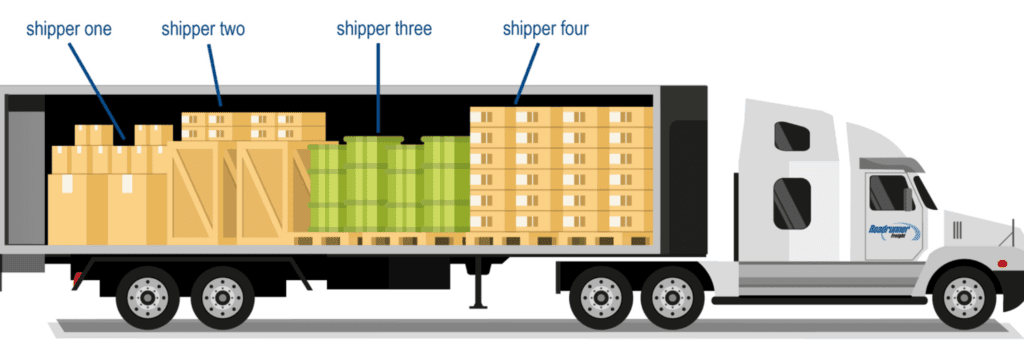
LTL is an opposite concept to FTL. For smaller shipments that don’t need a full truck, LTL shipments are an ideal solution. Here is a rundown of the characteristics of LTL
- Shippers share the space and capacity of the truck.
- The shipments or goods are of small volumes.
- LTL involves multiple destinations as goods from different shippers will be delivered at different locations.
- The concept of consolidation and deconsolidation is applied. Carriers will have to group and ungroup goods from different shippers.
Advantages of Using LTL for Specific Logistics Scenarios
Cost Saving for Small Shipments
LTL is a proven solution for businesses that do not need the capacity of a full truckload. Through LTL, a shipper will share the transportation cost with other shippers as they have their goods consolidated into a single truck. This will help save costs.
Lower Insurance Cost for Loss and Damage
Insurance cost on a shipper in LTL is significantly reduced. This cost is shared amongst other shippers and covers the loss or damage of goods.
Flexibility
LTL gives shippers the option to ship at any time without waiting to have goods that will fill a single container. It also provides flexibility for tight schedules, a way out of unforeseen circumstances, such as capacity shortages.
Typical Industries or Use Cases where LTL is Preferred
LTL is generally preferred for smaller shipments. This points toward industries and players that largely deal with small shipments.
- Retail and E-Commerce: Several retailers do not have the capacity or necessary volume to utilize a full truck. LTL is the alternative and preferred solution as it can consolidate shipments from different suppliers for delivery.
- Automotive: This industry utilizes LTL for small shipments, such as automobile parts. These parts are smaller than the main vehicles.
- Local Delivery: LTL is the ideal choice for delivering goods within a geographic region, especially when there are multiple destinations along a route.
- Sample Shipment: This is a case where companies need to transport a sample product for its buyer assessment. LTL is the preferred mode since the buyer is yet to make a decision on a full purchase.
Cost Consideration and Potential Savings with LTL Shipments
- LTL is an outright escape route from FTL cost. The cost is shared among shippers whose goods are consolidated into the truck.
- LTL’s connection with the just-in-time inventory system signifies its potential cost savings. This system reduces inventory holding time which influences cost.
Key Factors to Consider When Choosing Between FTL and LTL
Quantity and Size of Goods Being Shipped
Generally, FTL is suitable for shipping goods of large quantities while LTL is suitable for smaller quantities of goods.
- FTL: FTL shipments are typically heavy or bulky. The weight ranges from 907kg to about 19,000kg. Its volume ranges from 400- 2000 cubic feet.
- LTL: The weight for shipment ideal for LTL range from 45kg to 4,536kg. Its volume ranges from 10-300 cubic feet.
Time Sensitivity and Delivery Deadlines
- FTL: FTL proves to be more suitable for time-sensitive goods since the shipment belongs to a single shipper, hence eliminating multiple stops. This is a major boost to meet delivery deadlines.
- LTL: This may not be the best solution for time-sensitive goods as it involves multiple stops, which tends to increase transit time.
Cost Consideration Based on Shipment Size and Distance
- FTL: Shippers wanting to ship large shipments should consider FTL. FTL offers better cost savings for large shipments as there is an opportunity for bulk discounts or volume-based pricing which decreases with increased volume.
- LTL: This will save costs for smaller shipment sizes since all shippers share the cost. Appropriate freight classification can help further reduce the cost.
Special Handling Requirements or Restrictions
- FTL: Shipments with special handling requirements should move through FTL. This includes fragile, hazardous, and temperature-controlled shipments. FTL gives shippers more control and limits excessive handling.
- LTL: This is best for basic shipments with no special handling requirements. Consolidation, loading, and unloading will all affect the state and integrity of the shipment.
Frequency and Regularity of Shipment
LTL should be considered by shippers who ship frequently as this will help avoid capacity issues. LTL shipment provides a more flexible schedule than FTL. This means that it is easier to ship at any time via consolidation, which LTL offers, rather than waiting for the availability of a full truck.
Real-World Use Cases: FTL vs LTL
Case 1
Mr. A has a shipment of glass cups with a total weight of 16,000kg that needs to be transported via road to its destination.
The ideal solution here is FTL.
The factors that influenced this decision include:
- Shipment size is large weighing 16,000kg.
- Special handling required since the shipments comprise glass cups that are fragile.
FTL is beneficial in the following ways:
- FTL will offer Mr. A cost savings for his large shipment.
- FTL will reduce handling frequency, which is a boost to the safety of the fragile glass cup shipment.
Case 2
Mr. X supplies shoes to an e-commerce brand every week. Each shipment never exceeds 2000kg and these shipments are needed just in time.
The ideal solution for Mr. X is LTL.
The factors that influenced this decision include:
- Relatively small shipment size of 2000kg, which suits LTL.
- Mr. X ships frequently or regularly (every week).
- No special handling for the shipment.
- The shipment involves the just-in-time system.
LTL is beneficial in the following ways:
- LTL will help Mr.X save on cost.
- It provides truck space for Mr.X since he ships every week.
- LTL will make goods available to Mr. X’s customers without needing to hold too much inventory (Just-in-time inventory).
Tips for Making the Right Choice
Here are quick tips to help you make the right choice between FTL and LTL:
Evaluating Shipment Characteristics and Requirements
Shipment characteristics are significant determiners of the right truck solutions. Evaluate characteristics such as size, dimension, delivery time, and type. For example, large shipments should suggest FTL as the right choice.
Collaboration with Logistics Providers and Carriers
Technology will help you conduct historical data analysis to see different use cases of both FTL and LTL. It will also help out with route diagnostics, planning, and optimization. Data analytics can help analyze costs and give a clear picture of the most cost-effective solution for your shipment. This knowledge will point out the best shipping solutions.
Consideration of Long-term Logistics Strategies and Business Growth Plans
Long-term logistics and business growth plans will see one employ both solutions for the situation that best fits. Business growth will work on different aspects as it can either see the volume of shipment increase or see the need to ship more frequently. Increasing shipment volume suggests the adoption of FTL. This suggests that an LTL will no longer suffice since the business now ships a larger volume of goods.
How Al Sharqi Can Help
Al Sharqi will start from the point of aiding your choice of the right solution for your shipment. This is an easy feat by virtue of our experience and team of professionals. Whatever may be the ideal solution for your shipment, we have it covered. Al Sharqi offers FTL and LTL shipping services.
Our FTL and LTL shipping services are:
- Efficient via professionalism and technological implementations
- Cost-effective
- Safe and secured
- Visible and trackable
Contact Al Sharqi Now
Conclusion
FTL involves shipping goods of a large volume that can utilize the entire truck space This large volume of goods belongs to a single shipper. On the other hand, LTL involves the consolidation of goods from different shippers to fill a single truck. It is vital to assess the logistics needs to determine the most suitable option since both solutions have their pros and cons. This will help in the strategic use of FTL and LTL, which will in turn optimize supply chain operations.
Frequently Asked Questions
In, FTL, a single shipment fills the entire truck capacity while LTL involves consolidating shipments from different shippers to fill a truck capacity.
Both FTL and LTL can save cost when applied in the right situation. For example, FTL offers cost savings for large shipments and LTL does not.
The listed industries benefit from both FTL and LTL, depending on the volume of the shipment per time.
- Construction
- Manufacturing
- Retail and e-commerce
- Automobile
- Agriculture
- Oil and gas
- Shipment size: LTL is fit for small shipments while FTL is fit for a large shipment.
- Cost: LTL tends to cut down costs when shipments are of less volume but FTL will be the answer for larger volumes.
- Handling and risk: Shipments needing special handling should go through FTL while shipments with less handling risk can go through LTL.
- Transit time: LTL may not be as fast as FTL due to consolidation and deconsolidation time. LTL also delivers to multiple destinations.
Yes, the idea is to strategically employ both FTL and LTL based on the specific logistics needs.
Our customer service team is happy to assist you with planing your next booking.

Related Articles
Seamless Passenger Boat Delivery from Jebel Ali to Abu Dhabi | A Case Study
Precision Handling for High-Value Cargo Summary Handling oversized and high-value cargo, such as pas
Defense Solution by Al Sharqi Ground Transportation | A Case Study
Driving Excellence Across Borders Summary Al Sharqi Ground Transport was tasked to deliver 45 movabl
Navigating the Saif Zone to Jordan Logistics Corridor | A Case Study
From UAE to Jordan on the Road of Innovation Summary This case study explores the logistical challen




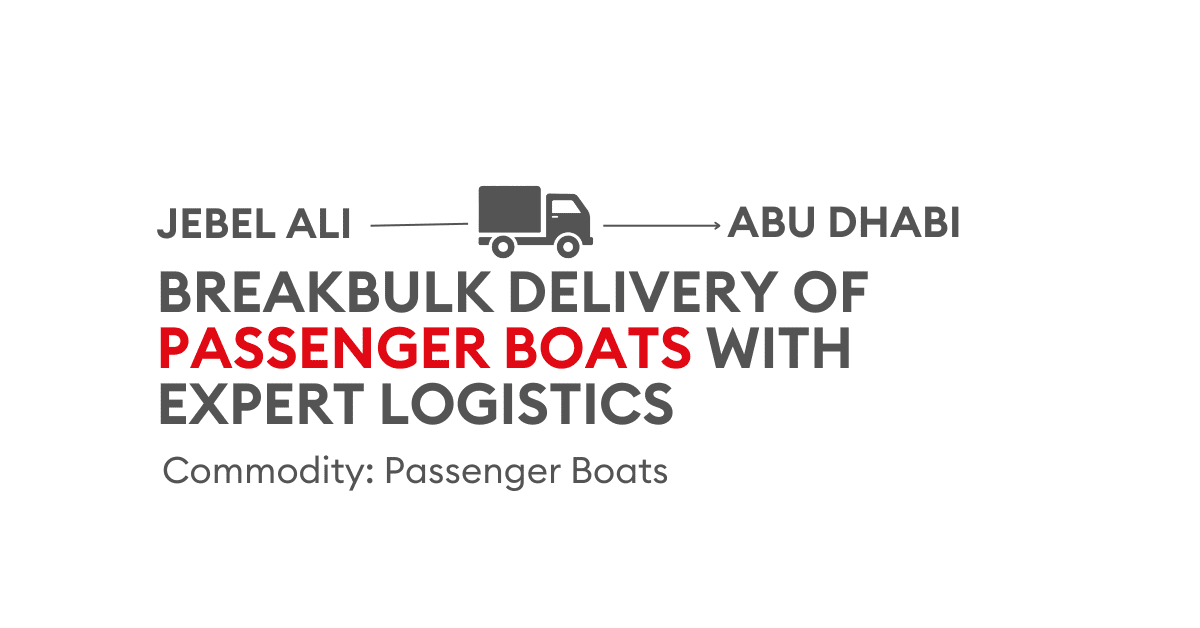

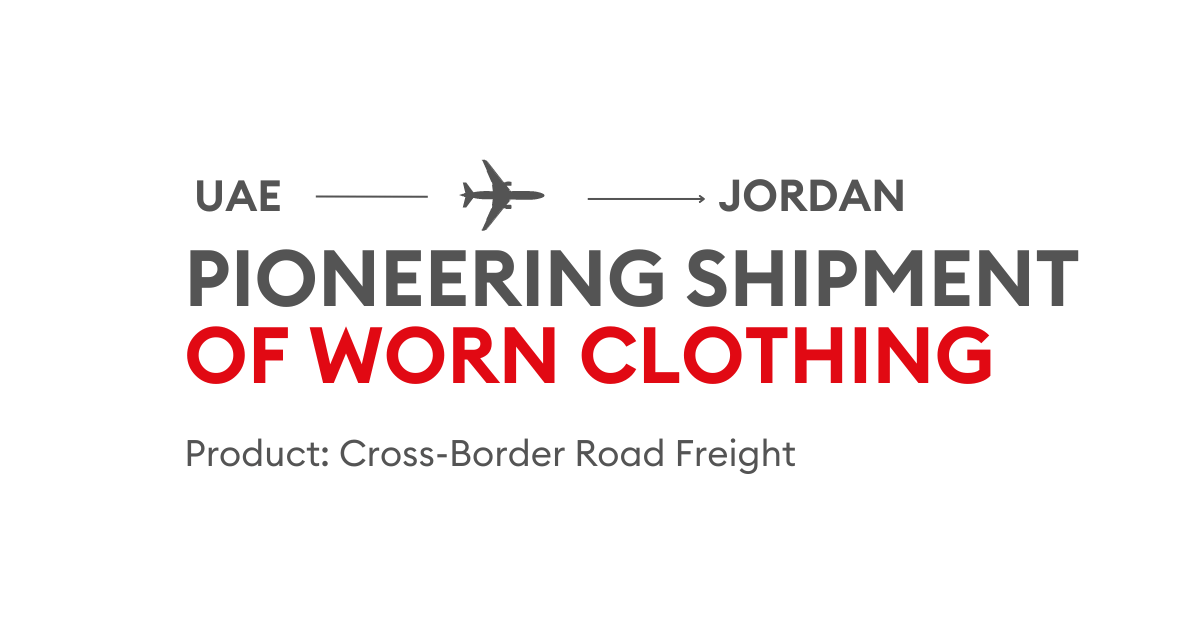
Post a comment
You must be logged in to post a comment.